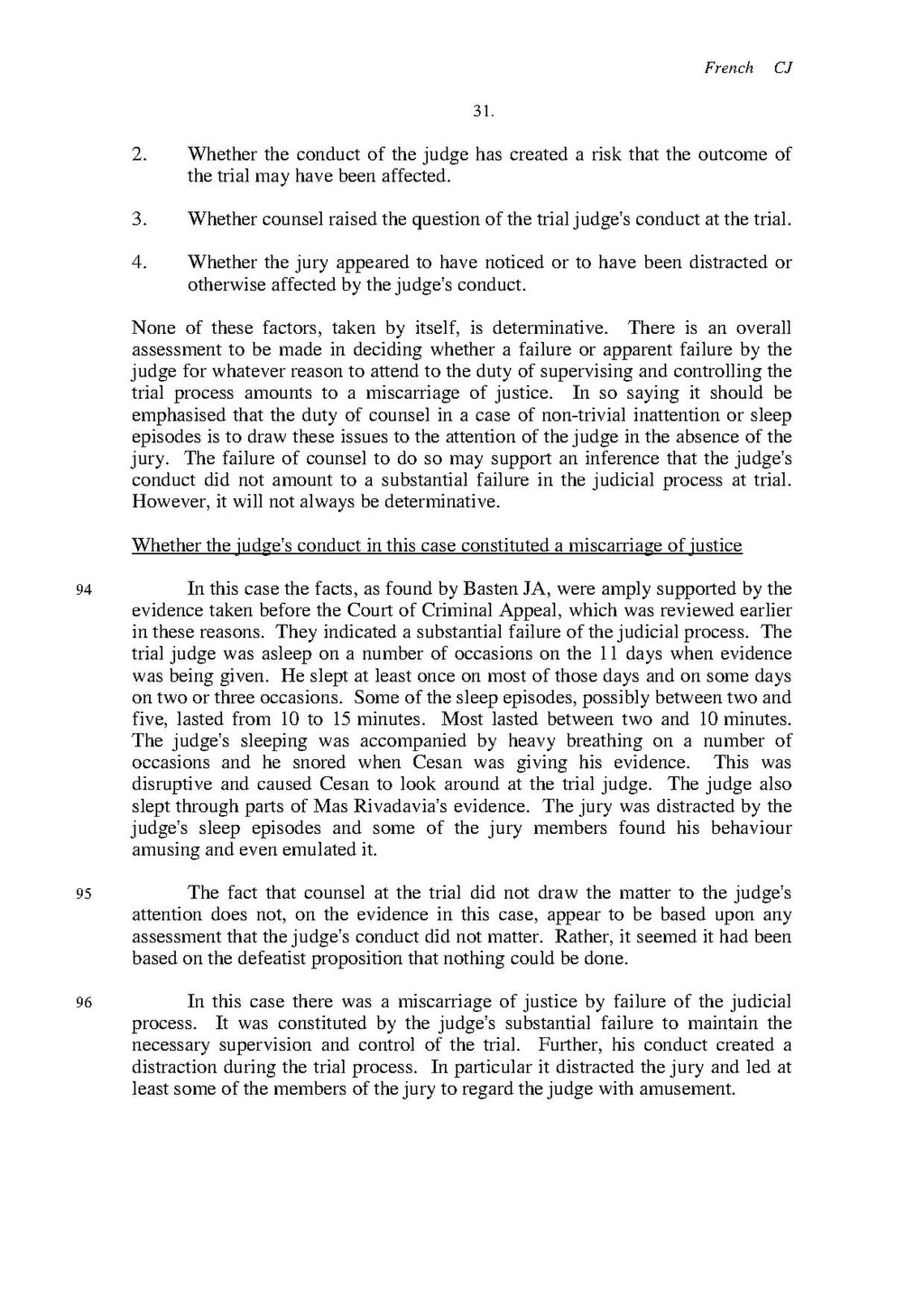31.
2. Whether the conduct of the judge has created a risk that the outcome of the trial may have been affected.
3. Whether counsel raised the question of the trial judge's conduct at the trial.
4. Whether the jury appeared to have noticed or to have been distracted or otherwise affected by the judge's conduct.
None of these factors, taken by itself, is determinative. There is an overall assessment to be made in deciding whether a failure or apparent failure by the judge for whatever reason to attend to the duty of supervising and controlling the trial process amounts to a miscarriage of justice. In so saying it should be emphasised that the duty of counsel in a case of non-trivial inattention or sleep episodes is to draw these issues to the attention of the judge in the absence of the jury. The failure of counsel to do so may support an inference that the judge's conduct did not amount to a substantial failure in the judicial process at trial. However, it will not always be determinative.
Whether the judge's conduct in this case constituted a miscarriage of justice
In this case the facts, as found by Basten JA, were amply supported by the evidence taken before the Court of Criminal Appeal, which was reviewed earlier in these reasons. They indicated a substantial failure of the judicial process. The trial judge was asleep on a number of occasions on the 11 days when evidence was being given. He slept at least once on most of those days and on some days on two or three occasions. Some of the sleep episodes, possibly between two and five, lasted from 10 to 15 minutes. Most lasted between two and 10 minutes. The judge's sleeping was accompanied by heavy breathing on a number of occasions and he snored when Cesan was giving his evidence. This was disruptive and caused Cesan to look around at the trial judge. The judge also slept through parts of Mas Rivadavia's evidence. The jury was distracted by the judge's sleep episodes and some of the jury members found his behaviour amusing and even emulated it.
The fact that counsel at the trial did not draw the matter to the judge's attention does not, on the evidence in this case, appear to be based upon any assessment that the judge's conduct did not matter. Rather, it seemed it had been based on the defeatist proposition that nothing could be done.
In this case there was a miscarriage of justice by failure of the judicial process. It was constituted by the judge's substantial failure to maintain the necessary supervision and control of the trial. Further, his conduct created a distraction during the trial process. In particular it distracted the jury and led at least some of the members of the jury to regard the judge with amusement.
